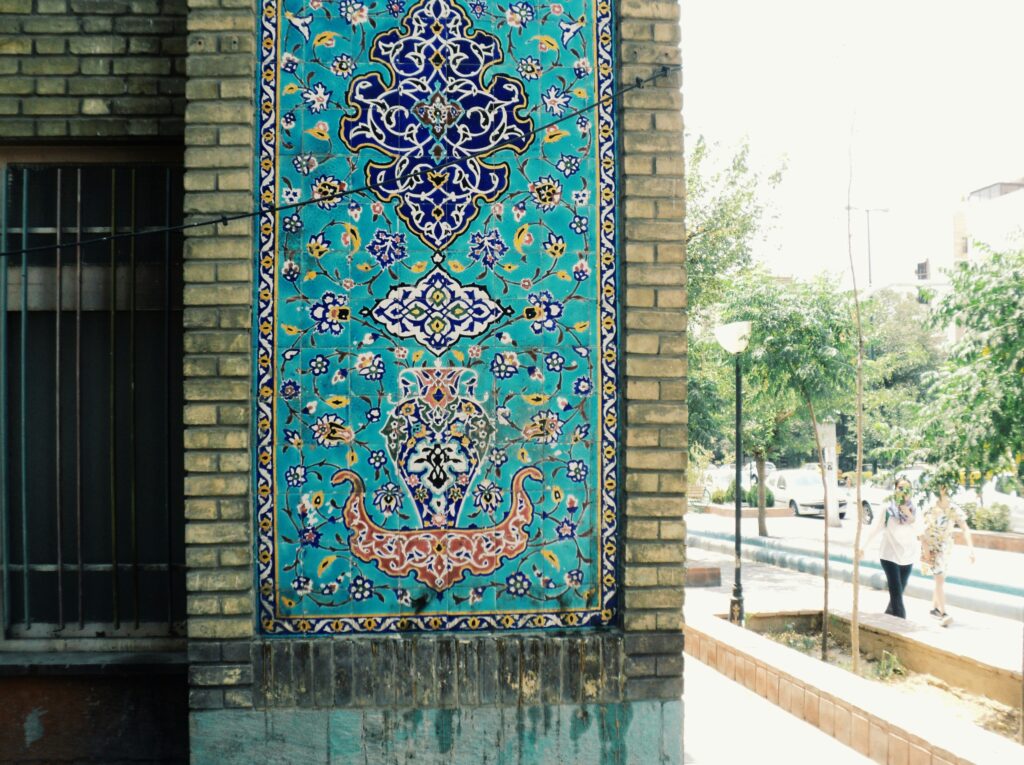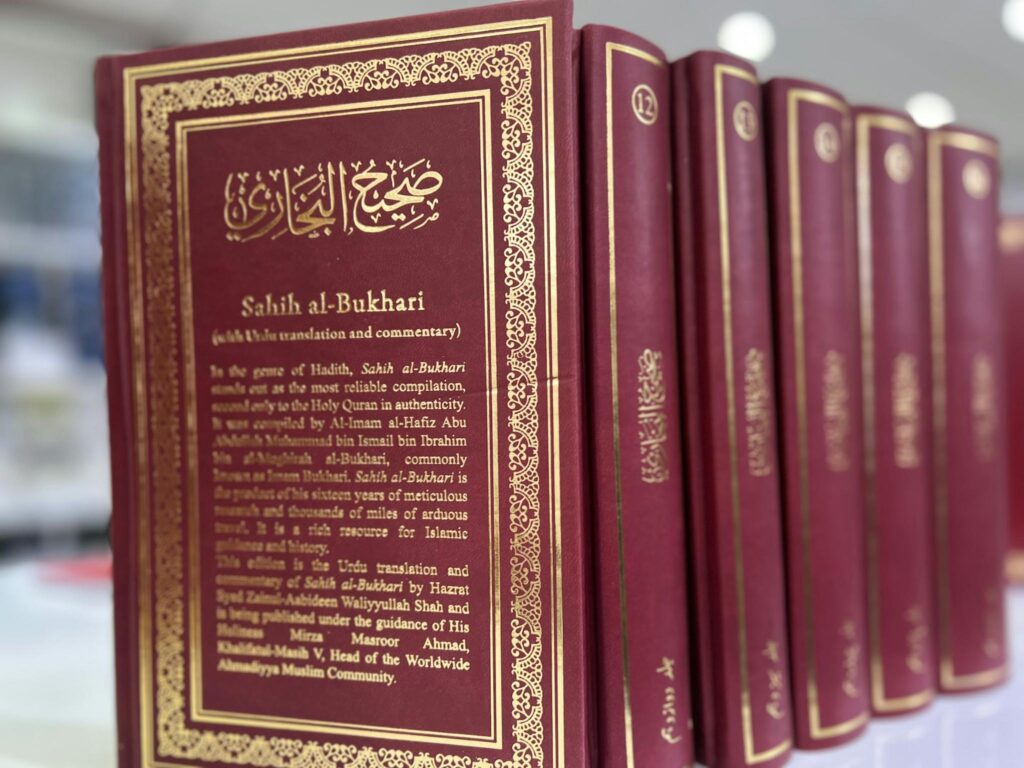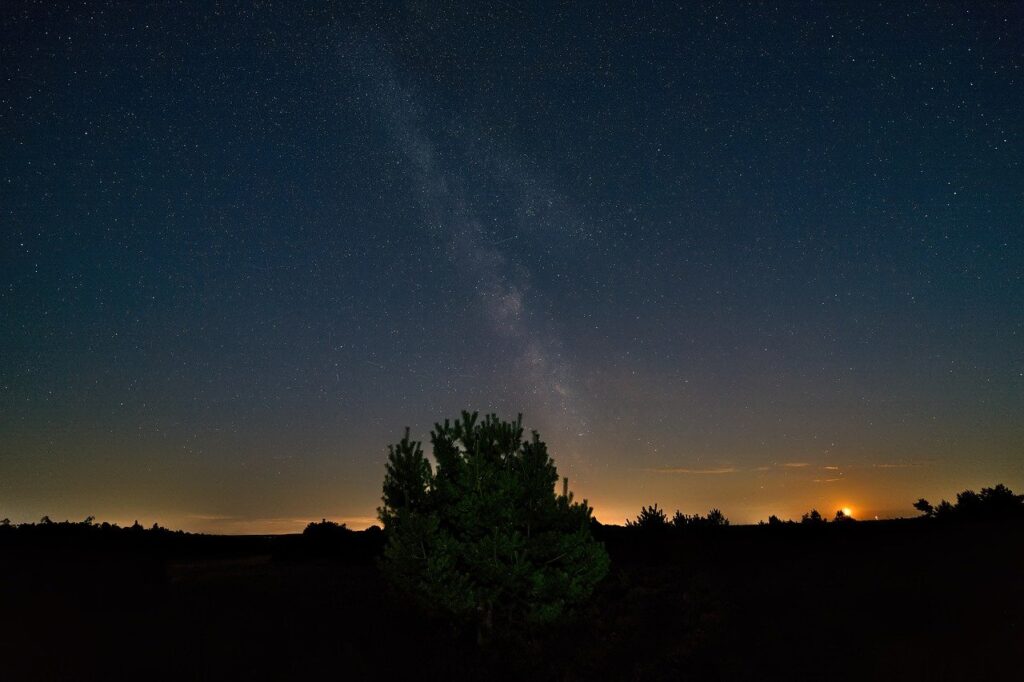Guidance regarding basic Islamic issues that Hazrat Amirul Momineen, Khalifatul Masih Vaa, has given on various occasions in his written correspondence and during MTA programmes is being published officially below for everyone’s benefit.
What is the meaning of ‘zulm’ in Islam?

A lady wrote to Hazrat Amirul Momineen, Khalifatul Masih Vaa: “It is stated in the Holy Quran that Allah does not guide the wrongdoers, i.e., those who commit zulm. What is meant by zulm and am I included among them, because I too wronged my own soul and became distant from Allah, after which He granted me the ability to repent?”
In his letter dated 10 July 2023, Huzoor-e-Anwaraa gave the following guidance on this matter:
“The essential purport of the teachings of Islam is that God Almighty has not compelled any human being to do good or evil. Rather, Allah the Exalted has clearly explained the paths of both good and evil and has given mankind the choice to walk whichever path they please and thus make their life in the Hereafter one of Paradise or one of Hell.
“Furthermore, while Satan is engaged at every moment in the effort to mislead humanity, Allah the Exalted also continuously creates impulses towards goodness in the world through His angels.
“Then, Allah the Exalted has also stated in the Holy Quran that if a person commits a sin or wrongs their own soul and then seeks forgiveness for their sin from Allah while repenting, Allah the Exalted not only forgives such people but also promises to grant them in the Hereafter such Gardens beneath which rivers flow, wherein they shall abide forever. (Surah Al-e-‘Imran, Ch.3: V.136-137)
“Similarly, there are countless ahadith of the Holy Prophetsa in which it is stated that if someone commits an evil deed and then sincerely repents and abstains from that evil in the future, Allah the Exalted accepts their repentance and admits them into Paradise. Hence, there was a man who had committed a hundred murders, but when he offered a sincere repentance, Allah the Exalted accepted his sincere repentance and, through His angels, created the means for him to be taken to Paradise. (Sahih al-Bukhari, Kitab ahadithI l-anbiya’, Bab hadithi l-ghar)
“The Promised Messiahas, elaborating on the subject of repentance [tawbah], states:
“‘According to the Holy Quran, all of God’s actions are sovereign in nature; just as He sometimes punishes sin, so too does He sometimes forgive sin. That is, His power is absolute over both aspects, as befits His complete sovereignty. And if He were to always punish sin, what refuge would man have? Rather, He often forgives sin and also punishes a sin for the purpose of admonition, so that the heedless person may be made aware and turn towards Him.’ (Chashma-e-Ma‘rifat, Ruhani Khazain, Vol. 23, p. 23)
“Similarly, he stated:
“‘Your God is the God Who accepts the repentance of His servants and forgives their evil deeds. Let no one be deceived that the Holy Quran also contains the following verse:
وَمَنۡ یَّعۡمَلۡ مِثۡقَالَ ذَرَّۃٍ شَرًّا یَّرَہٗ
“[‘And whoso does an atom’s weight of evil will also see it.’] (Surah az-Zilzal, Ch.99: V.9)
“‘It should be remembered that there is no contradiction between this and the other verses, because the evil referred to here is the evil that a person persists in, does not cease from committing and does not repent of. For this reason, the word sharr has been used here, not dhanb, so that it may be known that what is meant here is an act of wickedness from which a wicked person does not wish to desist. Otherwise, the entire Holy Quran is replete with the teaching that sins are forgiven through remorse, repentance, cessation of persistence and seeking forgiveness. In fact, God Almighty loves those who repent, as Allah the Exalted has stated in the Holy Quran:
إِنَّ اللَّهَ يُحِبُّ التَّوَّابِينَ وَيُحِبُّ الْمُتَطَهِّرِينَ (Surah al-Baqarah, Ch.2: V.223)
“‘That is, Allah the Exalted loves those who repent and also loves those who strive to somehow become pure from sin.’ (Chashma-e-Ma‘rifat, Ruhani Khazain, Vol. 23, p. 24)
“As for your question about what is meant by zulm, the definition of zulm in Arabic is as follows:
اَلظُّلْمُ هُوَ وَضْعُ الشَّيْءِ فِيْ غَيْرِ مَحَلِّهِ
“That is, to place something in a situation that is unbefitting for it is called zulm. That is why it is mentioned in a hadith that when the verse, الَّذِينَ آَمَنُوا وَلَمْ يَلْبِسُوا إِيمَانَهُمْ بِظُلْمٍ ‘Those who believe and mix not up their belief with injustice’ (Surah al-An‘am, Ch.6: V.83), was revealed, this weighed heavily upon the Companions. In view of this meaning of injustice or wrongdoing [zulm], they submitted to the Holy Prophetsa, ‘Which of us is there who does not wrong his own soul?’ Upon this, the Holy Prophetsa reassured the Companions and explained that the zulm meant here is not the zulm you are taking it to be; rather, zulm here means shirk or associating partners with Allah, because in shirk too, a person attributes the qualities of Allah the Exalted to a thing or a person or idols that are not the true bearers of those qualities. The Holy Prophetsa said:
لَيْسَ هُوَ كَمَا تَظُنُّونَ إِنَّمَا هُوَ كَمَا قَالَ لُقْمَانُ لِابْنِهِ، يَا بُنَيَّ لَا تُشْرِكْ بِاللَّهِ إِنَّ الشِّرْكَ لَظُلْمٌ عَظِيمٌ
“‘The matter is not as you suppose. It is rather as Hazrat Luqman said to his son: ‘Dear son, associate not partners with Allah. Surely, associating partners with Allah is a grievous wrong [i.e., zulm].’’ (Surah Luqman, Ch.31: V.14) (Muslim, Kitab al-iman, Bab sidqi l-imani wa ikhlasih)”
What is the Ahmadiyya standard for accepting the authenticity of a hadith?

A lecturer from Jamia Ahmadiyya sent an article of his titled, “A Critique of Sahih al-Bukhari”, to Hazrat Amirul Momineen, Khalifatul Masih Vaa, and sought guidance on it.
In his letter dated 13 July 2023, Huzoor-e-Anwaraa gave some golden instructions concerning researching a topic and writing articles. Huzoor-e-Anwaraa stated:
“Regarding ahadith, whether they are from Sahih al-Bukhari or any other book, the decision concerning their soundness and authoritativeness has been settled by the Just Arbiter [Hakam ‘Adl] of this age, the Promised Messiahas. We shall only accept as sound that hadith which is in accordance with the Holy Quran and the Prophetic sunnah and any hadith whose content contradicts the teaching of the Holy Quran or the sunnah of the Holy Prophetsa, we will deny its soundness, unless some interpretation [ta’wil] or reconciliation [tatbiq] is possible that can remove it from its opposition to the Quran and sunnah. The Promised Messiahas has stated this in many places, but his exquisite treatise, Al-Haqq Mubahathah Ludhiana, revolves entirely around this subject.
“In your article, you have recorded the number of ahadith in Sahih al-Bukhari that are open to criticism, as stated in previous books, and similarly, you have compiled various statistics regarding this critique. What will be the benefit of this, except that these statistics have been gathered in one place?
“You, as you have written yourself, are a lecturer of Hadith at Jamia Ahmadiyya and have also specialised in the subject of Hadith for five years. In view of your academic credentials, you ought to conduct research on each and every one of these criticisms and write papers in light of the Holy Quran, the ahadith of Allah’s Messengersa and the words of the Just Arbiter, the Promised Messiahas. And regarding a critique, if the position of the classical scholars is correct, then that critique should be further elucidated in light of these foundational sources. However, if their position is in need of correction, then a refutation of their stance should be presented in light of those same foundational sources.
“Furthermore, you should not confine yourself to considering only those ahadith as open to criticism which have been identified by former scholars. Rather, you should also research and write papers from a critical perspective on such ahadith of Sahih al-Bukhari that previous Hadith scholars considered sound but which, according to the criterion set by the Promised Messiahas, warrant a critical examination [jarh]. For example, the hadith of Sahih al-Bukhari that, مَنْ بَدَّلَ دِينَهُ فَاقْتُلُوهُ ‘Whoso changes his religion, kill him’. Now, this hadith is in stark contradiction to the teaching presented in the Holy Quran. Similarly, Imam Bukhari has established a chapter in his book under the heading, ‘إِذَا جَامَعَ ثُمَّ عَادَ وَمَنْ دَارَ عَلَى نِسَائِهِ فِي غُسْلٍ وَاحِدٍ’. The ahadith recorded under it certainly do not mean that whenever the Holy Prophetsa visited the house of any of his noble wives, he would necessarily establish marital relations with her. Rather, in these ahadith, the Companions are proudly describing the administrative capacity of their master, that it is exceedingly difficult for one man to fulfil the responsibility of even one wife, yet the Holy Prophetsa would fulfil the responsibilities of nine wives at one time in the most excellent manner. This was because Allah the Exalted had endowed the Holy Prophetsa with such administrative skills that he possessed the strength to fulfil the responsibilities of even thirty wives at one time in the most excellent way.
“Now, Imam Bukhari, through his chapter heading, has linked this exceedingly beautiful subject solely with physical relations. And the position of the scholars of Hadith regarding the chapter headings of Sahih al-Bukhari is that through the chapter heading, Imam Bukhari has expressed the purport of the ahadith stated in that chapter, which Imam Bukhari himself understood from those ahadith.
“Therefore, you should research and write by reflecting on each and every hadith in this manner, so that the reader of your article may know that a scholar and a specialist in Hadith has indeed presented genuine academic research.”
Can Laylatul Qadr (the Night of Decree) occur outside of Ramadan?

A lady from Australia wrote to Hazrat Amirul Momineen, Khalifatul Masih Vaa, relating a dream that every night before Fajr, at the time of Tahajjud, is Laylat-ul-Qadr (the Night of Decree), in which the grace of Allah the Exalted descends from heaven to earth. She asked whether there are many instances of Laylat-ul-Qadr, just as there are spiritual ranks.
In his letter dated 31 July 2023, Huzoor-e-Anwaraa gave the following reply to this question:
“The Holy Prophetsa has stated that when the final third of the night remains, our Lord, the Blessed and Exalted, descends every night to the lowest heaven and says, ‘Who is there to call upon Me, that I may answer their call? Who is there to ask of Me, that I may grant it to them? Who is there to seek My forgiveness, that I may forgive them?’ (Sahih al-Bukhari, Kitab al-jumu‘ah, Bab ad-du‘a’i fi s-salati min akhiri l-layl)
“Therefore, according to this guidance of the Holy Prophetsa, this final portion of every night is the best time for the acceptance of prayer and for attaining the nearness of Allah the Exalted. For this reason, when a person performs a spiritual struggle, leaving their comfortable bed and the pleasure of sleep to present themselves before God Almighty and falls in prostration before Him, supplicating with earnestness and humility, Allah the Exalted accepts their weeping and tearful entreaty and bestows His grace and mercy upon them. This, too, is indeed a Laylat-ul-Qadr for that person. The Promised Messiahas, elaborating on this subject, states:
“‘One Laylat-ul-Qadr is that which occurs in the latter part of the night, when Allah the Exalted manifests His glory and extends His hand, saying, ‘Is there anyone who prays and seeks forgiveness, that I may accept it from them?’ (Al Hakam, No. 27, Vol. 10, 31 July 1906, p. 4)
“Explaining the types and meanings of Laylat-ul-Qadr at another place, the Promised Messiahas states:
“‘The mention of Laylat-ul-Qadr in the Holy Quran, that it is better than a thousand months, has three meanings here. Firstly, that in Ramadan, there is one night of Laylat-ul-Qadr. Secondly, that the era of Allah’s Messengersa was also a Laylat-ul-Qadr, meaning that after a time of intense ignorance and faithlessness, that era arrived when the descent of angels occurred, because a Prophet does not come into the world alone. Rather, he is a king and with him is an army of millions and billions of angels, who engage in their respective tasks and draw the hearts of people towards goodness. Thirdly, Laylat-ul-Qadr for a person is their time of most sublime purity. Not all moments are the same. At times, Allah’s Messengersa would say to Aisha[ra], ‘O Aisha, bring me comfort and joy’ and at other times, he would be completely engrossed in prayer, as Sa‘dirh has said:
“‘In such a time as he mentioned, he was wrapt beyond Gabriel and Michael; and, at another time, he was contented with Hafsah and Zainab.’ [Edward B. Eastwick, trans., The Gulistan, 2nd ed., London: Trübner & Co., 1880, Book II, Story IX, p. 81)
“‘The closer a person draws to God, the more this time becomes available to them.’ (Al Hakam, No. 32, Vol. 5, 31 August 1901, pp. 13-14)
“Thus, Laylat-ul-Qadr is a manifestation of the grace and mercy of Allah the Exalted, which has various meanings and various forms. And it can be made available to humanity both collectively and can also fall to the lot of a person individually.”
What did the Promised Messiah (as) say about the effect of moonlight on plants?

The Nazim of Dar-ul-Ifta’ wrote to Hazrat Amirul Momineen, Khalifatul Masih Vaa, regarding a phrase from a reply given in the “Answers to Everyday Issues” column [of Al Hakam], which stated, “Likewise, moonlight also affects a variety of vegetables and fruits and the development of their sweetness.” He asked whether the attribution of the production of sweetness in fruits to moonlight is new research or if it was stated through an oversight, because until now, the research stated by the Promised Messiahas has been the established view in the scientific world: “The light of the moon is undoubtedly effective for making fruits grow plump, the heat of the sun for ripening and sweetening them, and certain winds for the abundant bearing of fruit.” (Tauzih-e-Maram, Ruhani Khazain, Vol. 3, p. 71).
In his letter dated 7 August 2023, Huzoor-e-Anwaraa, clarifying this matter, stated:
“In the aforementioned guidance of the Promised Messiahas, a general point has been made that fruits grow plump from moonlight and ripen and become sweet from the Sun’s heat. However, it is not denied in this statement that moonlight does not produce sweetness in fruits or that the Sun’s heat does not make them grow plump. Rather, the fact is that some fruits ripen and become sweet from the Sun’s heat, some fruits grow from moonlight and some become sweet from moonlight. That is why, on another occasion, the Promised Messiahas also stated:
“‘We believe in the effects of the Moon, the Sun and the other planets. Man benefits from them, and even when a child is in its mother’s womb, the effects of these bodies have an influence on the child. This matter is not against the Sharia. That is why we have no objection to accepting it. The effect of moonlight on vegetation is clearly manifest. Fruits grow plump from moonlight. Sweetness is produced in them, and at times, people have even heard the sound of pomegranates bursting open as they split due to the effect of moonlight.’ (Malfuzat, Vol. 10, 2022, p. 377)
“As for the rest, scientific research is, for now, silent on the matter of fruits growing plump and sweetness being produced in them from moonlight. However, the Promised Messiahas has stated this subject in various places. Similarly, Hazrat Musleh-e-Maudra has also stated his own observation regarding the effect of moonlight on fruits and vegetables, and it is my personal observation as well that the Moon has an effect on fruits and vegetables.”
(Compiled by Zaheer Ahmad Khan, Head of Records Department, Private Secretariat, London and translated by Al Hakam)

